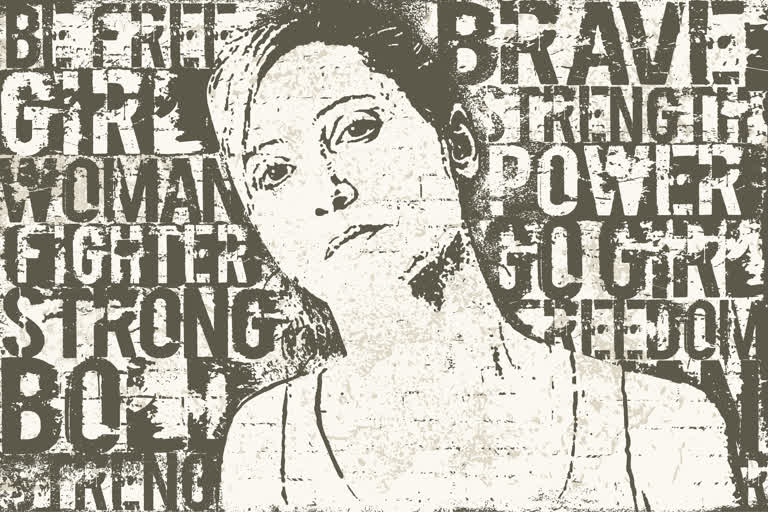Hyderabad:As a teenager, Bani Srivastava (name changed) was never interested in marriage. She was happy cycling from home to school, wind on her face, with the majestic French architecture of Pondicherry rolling by. Bani dreamed of becoming a teacher one day.
Deep within, she knew she had to settle down at some point. Eventually, she caved into her parents' wishes and tied the knot, a life decision taken in a matter of weeks by her parents with the friends of distant relatives.
Marriage, at the onset, was blissful. Her husband, an engineer in Delhi, would write her letters. Sending bouquets of flowers from work became regular and romantic dinner dates during the weekends were alluring. She had somehow given in to her new life and found a job at a nearby school in the city where her husband lived.
Also read:Abortion in US: In rural West, more worries about access to clinics
However, their relationship would soon take the first blow. A minor argument would snowball and she would have to endure the ugly side of her husband. Bani was slapped. "Two months of marriage and he put hands on me," she tells trying to hide the quaver in her voice.
Bani's marriage came crashing down when her husband refused to pay for her treatment after she was diagnosed with Type 1 diabetes. His family, too, started mistreating her thereon. "I never thought life would become a living hell. I refused to suffer abuse and decided to get a divorce. I am just 30 and I could see my whole life ahead of me," she says.
Bani is currently going through a divorce and legal proceedings are underway. "The fear of trusting someone and uncertainties surrounding it makes me think I would rather trust myself than give power to the partner who can destroy me. I am better off alone than staying in an abusive relationship," she adds.
If numbers are anything to go by, India currently has the lowest number of divorces in the world. According to the global divorce rate index, the divorce rate is lower than 1 per cent. A report published last year said, "Out of 1000, only 13 marriages end in divorce in India. About 1.36 million people in India are divorced. That is equivalent to 0.24% of the married population, and 0.11% of the total population."
Even so, a lower divorce rate doesn't necessarily reflect that couples are happily married. Several reasons like the stigma attached to divorces, and fear of being labelled a divorcee in Indian society keep women in the country from taking the step. Financial insecurity and bringing shame to family play a major part in impacting a woman's decision.
However, as we trudge towards a more progressive society, the new-age Indian women are pushing boundaries and slowly changing the narrative. They are educated, independent, braver if not fearless, and can manage work and child-rearing at the same time. According to the Census 2011, the number of single women in the country increased from 51.2 million in 2001 to 71.4 million in 2011, indicating that women are preferring singlehood over a hostile relationship.
Amicable separation, too, is gaining ground in India. The mindset around divorce, especially among urban adults, is opening up to the idea that separation may not be bad after all. "Remove the stigma around the word divorce. It's better to have a woman who is a divorcee rather than a woman who is in a bad marriage. Educate the people that divorce is not such a bad thing," Mumbai-based Dr Reema Shah, Couples and Family Therapist, is of the view.
Although, Farzana, a resident of Srinagar in Kashmir and a mother of a 4-year-old daughter, Yasmin, had a hard time going through the implications of divorce. Unlike Bani, she also had a daughter to look after which made the separation even more difficult as Yasmin was exhibiting dysfunctional behaviour due to their marital discord and unrest in the environment.
